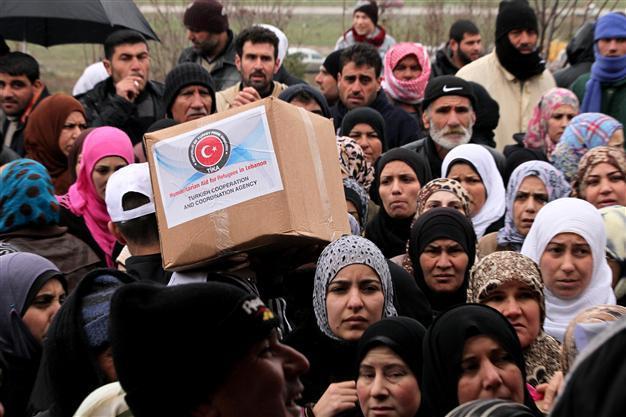Turkey urges world’s help on Syrian refugees as spending reaches $6 billion
NEW YORK

AA Photo
Turkey has said its financial burden emanating from the Syrian conflict has reached $6 billion, calling for more help from the international community. The United Nations, meanwhile, said Turkey has become the largest refugee host in the world.Speaking to the United Nations Security Council on Feb. 26, Turkish Ambassador to the U.N. Yasar Halit Çevik said the financial contribution Turkey has received from the international community to deal with Syria’s humanitarian crisis amounts to only one twentieth of the financial burden it shoulders.
Çevik said the Turkish state had so far spent $6 billion overall, while the total contributions it received stood at $300 million.
“I must stress that the current situation is not sustainable. Neither for Turkey nor for any other country in the region,” he added.
Meanwhile, U.N. High Commissioner for Refugees Antonio Guterres said Turkey had become the country hosting the largest number of refugees in the world amid a “staggering” growth in displacement from Syria.
In a briefing to the United Nations Security Council on the humanitarian situation in Syria, Guterres said the Syrian refugee crisis had “overwhelmed” existing response capacities, with 3.8 million refugees registered in neighboring countries.
Çevik described the humanitarian burden of the Syrian crisis on Syria’s neighboring countries as “unfair.”
“They should not be left alone in coping with this humanitarian tragedy, which requires a genuine partnership among all members of the international community,” he said.
This partnership must address the refugee crisis, the resilience of host communities and increasing resettlement efforts, he added, “while at the same time bearing in mind the future human resources needs of Syrian society for the sustainable development of post-conflict Syria.”
















